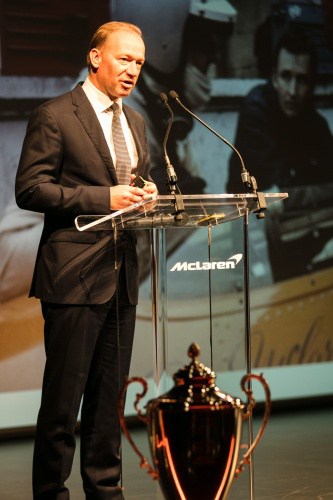McLaren CEO urges industry push on lightweighting
Mike Flewitt, CEO of McLaren Automotive, has called on industry and government to come together to make lightweighting a top priority for the UK automotive sector.

Speaking at the SMMT’s industry summit, Flewitt framed the issue in terms of a new “weight race” to replace the “power race” that has traditionally dominated the car industry. While powertrain innovation will continue to play a fundamental role, the McLaren chief said synergies with lightweighting can drive performance improvements while reducing the overall ecological impact of vehicles.
“We now have a fantastic opportunity for the UK to be at the very forefront of a new automotive ‘weight race’ that can help achieve increasingly tough environmental targets,” he said.
“It is clear to us that to be successful in lightweighting, industry and government need to continue to work closely to ensure we all capitalise on the benefits for the sector, for the UK in general and also for vehicle owners who will increasingly demand more efficient products that deliver the driving attributes they expect.”
In 1981, McLaren was the first Formula 1 team to introduce a carbon fibre chassis. The material’s attributes mean that every car it has produced since – both for the road and the racetrack – has featured carbon fibre components. As an example, its latest hypercar - the Senna - features carbon fibre doors that weigh less than 10kg each.
Register now to continue reading
Thanks for visiting The Engineer. You’ve now reached your monthly limit of news stories. Register for free to unlock unlimited access to all of our news coverage, as well as premium content including opinion, in-depth features and special reports.
Benefits of registering
-
In-depth insights and coverage of key emerging trends
-
Unrestricted access to special reports throughout the year
-
Daily technology news delivered straight to your inbox










Water Sector Talent Exodus Could Cripple The Sector
Maybe if things are essential for the running of a country and we want to pay a fair price we should be running these utilities on a not for profit...